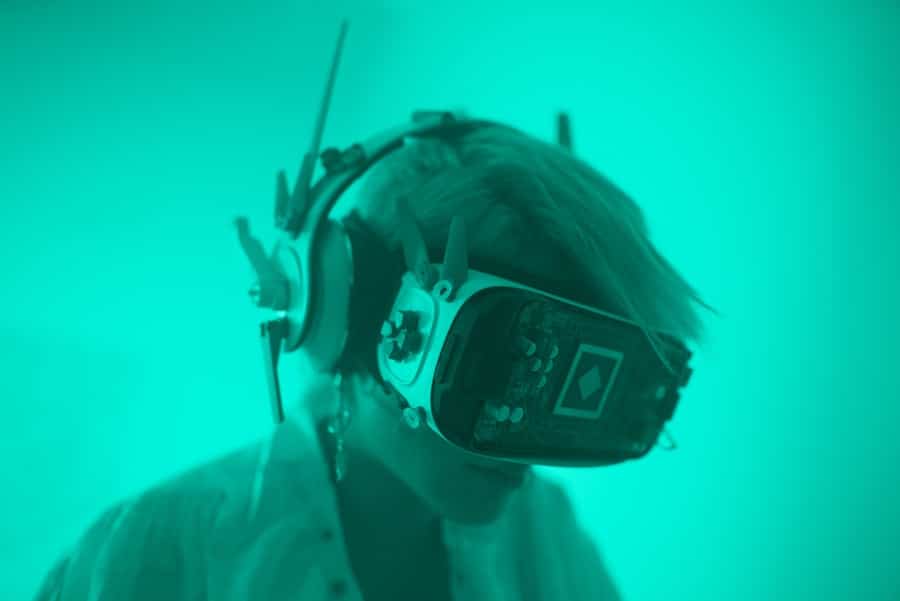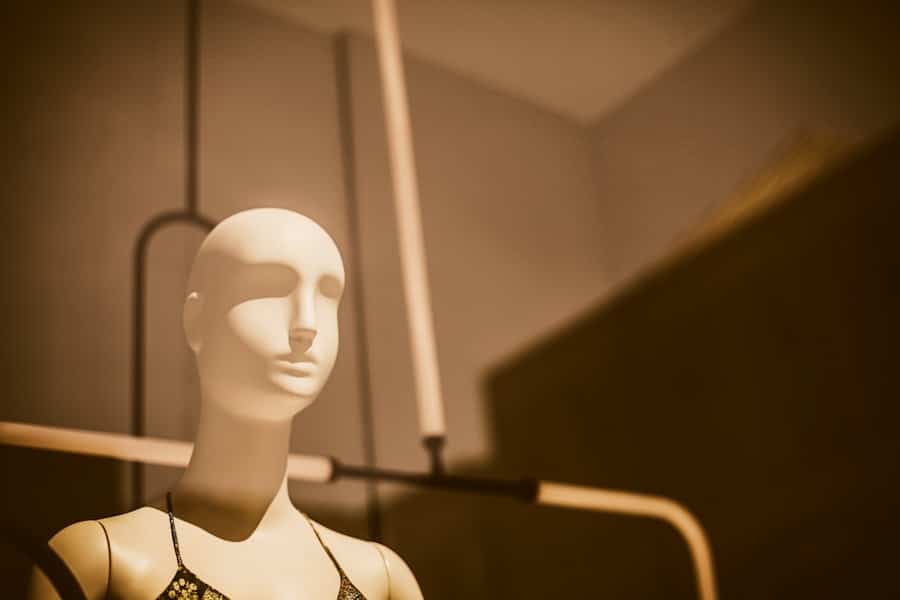The journey of artificial intelligence in the realm of film has been nothing short of remarkable. From its nascent stages in the early days of cinema, where rudimentary algorithms were employed to enhance visual effects, to the sophisticated systems we see today, AI has transformed the filmmaking landscape. You might recall iconic films like “2001: A Space Odyssey,” which introduced audiences to HAL 9000, a sentient computer that sparked discussions about the potential and dangers of AI.
This early representation laid the groundwork for how filmmakers would approach the concept of artificial intelligence, blending science fiction with philosophical inquiries about consciousness and existence. As technology advanced, so did the capabilities of AI in film production. The introduction of machine learning algorithms allowed filmmakers to analyze vast amounts of data, leading to more informed decisions regarding casting, marketing, and audience engagement.
You may have noticed how streaming platforms utilize AI to recommend films based on your viewing habits, showcasing a practical application of this technology. This evolution has not only streamlined production processes but has also opened new avenues for creativity, enabling filmmakers to explore narratives and visual styles that were previously unimaginable.
Key Takeaways
- AI in film has evolved from being a mere plot device to a tool that influences storytelling, character development, scriptwriting, and visual effects.
- AI has impacted storytelling techniques by analyzing audience preferences and creating personalized narratives, leading to more engaging and immersive experiences.
- AI plays a significant role in character development by analyzing human behavior and emotions, leading to more complex and relatable characters on screen.
- The use of AI in scriptwriting and plot development has streamlined the creative process, allowing for faster ideation and experimentation with different storylines.
- AI has influenced visual effects and cinematography by enabling the creation of realistic and breathtaking scenes that were previously impossible to achieve.
AI’s Impact on Storytelling Techniques
AI has significantly influenced storytelling techniques in contemporary cinema, reshaping how narratives are constructed and delivered. You might find it fascinating that AI can analyze successful films and identify patterns in storytelling that resonate with audiences. By examining elements such as pacing, character arcs, and plot twists, AI can provide insights that help writers craft compelling stories.
This data-driven approach allows filmmakers to create narratives that are more likely to engage viewers, ensuring that their films stand out in an increasingly crowded market. Moreover, AI’s ability to generate content has led to innovative storytelling methods. Imagine a scenario where an AI system collaborates with human writers to create unique plotlines or dialogue.
This partnership can result in unexpected twists and turns that keep audiences on the edge of their seats. You may have encountered films that incorporate non-linear storytelling or interactive elements, where viewers can influence the direction of the narrative. These advancements not only enhance viewer engagement but also challenge traditional storytelling conventions, pushing the boundaries of what cinema can achieve.
AI’s Role in Character Development

Character development is a crucial aspect of filmmaking, and AI is playing an increasingly prominent role in this area. You may have noticed that modern films often feature complex characters with rich backstories and nuanced motivations. AI can assist writers in creating multidimensional characters by analyzing audience preferences and psychological profiles.
By understanding what traits resonate with viewers, filmmakers can craft characters that feel authentic and relatable. Additionally, AI can help in the casting process by analyzing actors’ previous performances and their suitability for specific roles. This data-driven approach ensures that the right actor is chosen for each character, enhancing the overall quality of the film.
You might find it intriguing that some filmmakers are even experimenting with AI-generated characters, creating digital personas that can interact with human actors on screen. This fusion of technology and creativity opens up new possibilities for character exploration and development, allowing filmmakers to push the boundaries of traditional storytelling.
The Use of AI in Scriptwriting and Plot Development
Scriptwriting is often considered one of the most challenging aspects of filmmaking, but AI is beginning to alleviate some of this burden. You may have heard about AI tools that assist writers in generating dialogue or suggesting plot points based on established narrative structures. These tools can analyze existing scripts and identify successful elements, providing writers with a valuable resource as they craft their stories.
This collaborative approach between human creativity and machine intelligence can lead to more polished scripts and innovative plot developments. Furthermore, AI can streamline the revision process by offering suggestions for improving pacing or enhancing character interactions. Imagine having an assistant that can quickly analyze your script and provide feedback on areas that may need refinement.
This not only saves time but also allows writers to focus on their creative vision while leveraging AI’s analytical capabilities. As you explore the world of filmmaking, you may find that this integration of AI into scriptwriting is revolutionizing how stories are told on screen.
AI’s Influence on Visual Effects and Cinematography
Visual effects have always been a cornerstone of cinematic storytelling, and AI is taking this aspect to new heights. You might be amazed at how AI algorithms can generate realistic visual effects that were once labor-intensive and time-consuming to create. From generating lifelike environments to enhancing action sequences, AI is enabling filmmakers to push the boundaries of visual storytelling.
This technology not only saves time but also reduces costs, allowing independent filmmakers to achieve high-quality visuals without breaking the bank. In addition to visual effects, AI is also influencing cinematography by assisting in camera movements and shot composition. Imagine a scenario where an AI system analyzes a scene’s lighting and framing in real-time, providing recommendations for optimal camera angles or adjustments.
This level of precision can enhance the overall visual aesthetic of a film, ensuring that every shot is meticulously crafted. As you watch films today, you may notice how seamlessly integrated these advanced technologies are, creating immersive experiences that captivate audiences.
The Future of AI in Film: Opportunities and Challenges

As you look ahead to the future of AI in film, it’s clear that there are both exciting opportunities and significant challenges on the horizon. On one hand, the potential for innovation is vast. Filmmakers can harness AI to create more engaging narratives, develop complex characters, and produce stunning visuals that captivate audiences worldwide.
The democratization of filmmaking through accessible AI tools means that aspiring creators can bring their visions to life without needing extensive resources. However, with these opportunities come challenges that must be addressed. One concern is the potential for over-reliance on AI, which could lead to homogenized storytelling or a lack of originality in films.
As you engage with cinema, it’s essential to consider how filmmakers can strike a balance between leveraging technology and preserving the unique human touch that makes storytelling so powerful. Additionally, issues related to copyright and ownership of AI-generated content will need careful consideration as the industry evolves.
Ethical Considerations of AI in Film
The integration of AI into filmmaking raises important ethical considerations that you should be aware of as a viewer and supporter of the arts. One significant concern revolves around representation and bias in AI algorithms. If these systems are trained on existing data that reflects societal biases, they may inadvertently perpetuate stereotypes or exclude marginalized voices from narratives.
As you engage with films influenced by AI, it’s crucial to advocate for diverse perspectives and ensure that technology serves as a tool for inclusivity rather than exclusion. Another ethical consideration involves the potential displacement of jobs within the industry. As AI takes on roles traditionally held by humans—such as scriptwriting or visual effects—there is a risk that talented individuals may find themselves sidelined.
You might ponder how the industry can adapt to these changes while still valuing human creativity and expertise. Encouraging collaboration between human artists and AI systems could be a way forward, ensuring that technology enhances rather than replaces the artistry inherent in filmmaking.
The Intersection of AI and Human Creativity in Filmmaking
Ultimately, the relationship between AI and human creativity in filmmaking is one of collaboration rather than competition. As you explore this intersection, you’ll discover that AI serves as a powerful tool that can augment human creativity rather than diminish it. Filmmakers who embrace this partnership can unlock new levels of innovation and storytelling potential, creating works that resonate deeply with audiences.
You may find it inspiring to consider how this collaboration can lead to groundbreaking films that challenge conventions and push artistic boundaries. By combining human intuition with machine intelligence, filmmakers can explore uncharted territories in narrative structure, character development, and visual aesthetics. As you continue your journey through cinema, keep an eye on how this dynamic relationship evolves—it’s an exciting time for both technology and storytelling as they converge in ways we are only beginning to understand.
In a recent article on AI Lab 360, the discussion of preserving privacy in an AI-driven world is particularly relevant to the topic of AI in Film: Transforming the Art of Storytelling. As filmmakers increasingly rely on AI technology to enhance their storytelling capabilities, concerns about data privacy and security become more pressing. The article explores the challenges and potential solutions for safeguarding privacy in an AI-driven world, shedding light on the ethical implications of using AI in creative industries. To read more about this important topic, visit
